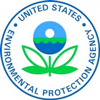| Presented in Partnership with: | |||
 |
 |
||
Toxic Release Inventory (TRI)
What is TRI? By Federal law, companies that use more than a certain minimum amount (the "threshold") of any of a long list of toxic chemicals are required to submit a Toxic Chemical Release Inventory (TRI) Form (also known as Form R). Every company in the country has the same filing deadline, July 1, covering the preceding calendar year. Forms are submitted directly to EPA, and to designated state agencies.
TRI reporting is a two-step process.
First, you need to determine whether you are required to submit a Form R. Your company is subject to reporting if it meets two criteria:
- You have 10 or more full-time employees (or the equivalent 20,000 hrs/year), and
- Your facility "manufactured, processed, or otherwise used" any of the listed toxic chemicals in amounts greater than threshold quantities.
Then, for each listed chemical you use above threshold quantities, you will need to report on the Form R how much of the chemical you have "released", and where it went. In the TRI definition, "releases" include not only emitting listed chemicals into the environment, but also sending materials containing listed chemicals off-site for recycling or disposal. You are also asked to report on chemicals that you recycle internally. The purpose is to provide a picture of how you manage your waste.
Note that there are two quantities that matter for each chemical.
- The amount of each chemical that you "manufactured, processed, or otherwise used" determines whether you are required to file a report.
The amount of each chemical that you "released" is the amount that actually gets reported.
 Lead and TRI Reporting. This report, prepared by the STERC staff, provides TRI compliance guidance focusing on the new lead threshold. The document will be updated as necessary.
Lead and TRI Reporting. This report, prepared by the STERC staff, provides TRI compliance guidance focusing on the new lead threshold. The document will be updated as necessary.
 TRI Burden Reduction Rule (posted April 11, 2007).
TRI Burden Reduction Rule (posted April 11, 2007).
This rule expands eligibility for TRI reporters to use Form A, a simpler form with less detailed information, in lieu of the more detailed Form R for PBT chemicals (except for dioxin and dioxin compounds), when there have been no releases or other disposal into the environment and the total amount of the chemical managed by treatment, energy recovery, and/or recycling is not more than 500 pounds. (More information.)
 TRI Ask the Expert with Joelie Zak. Ask an industry expert specific TRI questions online.
TRI Ask the Expert with Joelie Zak. Ask an industry expert specific TRI questions online.
 TRI Ask the Expert Archive with Joelie Zak. Read Joelie Zak's answers to TRI questions submitted during the past several months.
TRI Ask the Expert Archive with Joelie Zak. Read Joelie Zak's answers to TRI questions submitted during the past several months.
 EPA Guidance Documents
EPA Guidance Documents
- General Guidance
- EPCRA Section 313 Release Reporting Requirements "blue brochure" (February 2001 Revision; PDF, 614 KB.
- Title III List of Lists (November 1998 Revision; PDF, 587 KB).
- Revised 1998 EPCRA Section 313 Questions and Answers (December 1998; PDF, 4.3 MB)
- Addendum to 1998 Q&A Document (Dec 2004; PDF, 609KB)
- The Assistance Library (March 3, 2006; Self-extracting Zip file). This Windows help file provides users with a searchable collections of information on the TRI submission process and its requirements.
- TRI Reporting Assistance Tools
- Reporting Forms and Instructions
- TRI Reporting Software
- TRI Information Center (formerly the EPCRA Hotline)
- Training Workshops and Materials
- Software Development
- TRI Threshold Tool
- Get TRI Data. TRI data and information are made available by EPA in a number of ways to assist the widest range of users. For example, TRI Explorer is a searchable online database.
- Revising and Withdrawing TRI Data
- The Process for Revising TRI Data (November, 2004)
- The Process for Withdrawing TRI Data (November, 2004)
- Chemical Specific Help
 |
 |
 |
The information contained in this site is provided for your review and convenience. It is not intended to provide legal advice with respect to any federal, state, or local regulation.
You should consult with legal counsel and appropriate authorities before interpreting any regulations or undertaking any specific course of action.
Please note that many of the regulatory discussions on STERC refer to federal regulations. In many cases, states or local governments have promulgated relevant rules and standards
that are different and/or more stringent than the federal regulations. Therefore, to assure full compliance, you should investigate and comply with all applicable federal, state and local regulations.